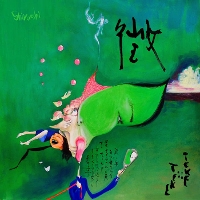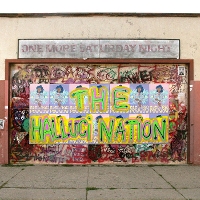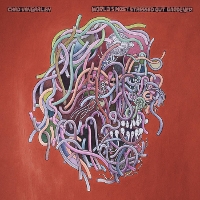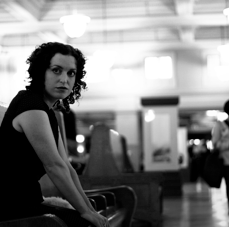 Mary Kastle The Mary Kastle InterviewAfter two EPs, jazz pianist Mary Kastle is ready for the big time with a jazz and pop flavoured full-length debut. I first ran into Mary Kastle when she played in Kamloops at a local coffee shop. She was touring with Christa Couture. They played separately and although there shows were entirely different, they indeed did complement each other. Mary’s section of the show contained original compositions featuring her beloved Rhodes piano and selections from her two EPs. Her solo music combined jazz with pop and folk and was very well received. Recently she was back in the studio and she has released her first full length CD on Steve Dawson’s Black Hen Records; this time with a full band. After her CD release party at the Cellar in Vancouver, Mary went on a mini-tour of the BC interior, where she performed with bassist Jennifer Hodge and drummer Paul Townsend. She is scheduled to appear at The Libra Room in Vancouver as part of the International Jazz Festival. I caught up with her in Vancouver just before the CD release party. JD: I’m going to take you way back and see how your memory is. It’s kind of tough for some people, it would be for me I know, but what was your first musical memory? MK: That is tough, wow. I remember being in a piano lesson at about four years old. That’s one of my first musical memories and I just remember feeling pretty nervous actually. I don’t actually remember what my teacher looked like but I felt like it was kind of a high pressure situation (laughs) but I do remember sitting at the piano and kind of looking at this piece of music and doing some playing and I think I was about four years old. JD: So that big piano was pretty overwhelming? MK: It was. Ya, I actually didn’t like piano very much when I was growing up. I actually ended up quitting piano when I was about ten. I had a really hard time with it when I was a kid. Then I took a break and got into dancing. I actually really wanted to be a dancer. That was my big dream, but it really didn’t work out that way for a couple of reasons. Then when I was twelve or thirteen and we were living in Vancouver I really started getting back into music. It was right around the time that Sarah McLaughlan kind of ‘blew up’ and it was the first time that I realized that she was from Vancouver and that somebody from Canada could do that (laughs). For some reason I had this notion that you had to be from Hollywood if you wanted to be a singer (laughs), so it was pretty inspirational to me.  I think I wrote my first song when I was around seven years old
I think I wrote my first song when I was around seven years old
JD: Ya, I imagine she would be. Who else would you list as your influences, Mary? MK: I was really, really into Tori Amos when I was growing up, mostly because of the piano. I remember the very first time I heard her on the radio, I didn’t know who it was, but I just heard the piano. I hadn’t returned to the piano, but I had started playing guitar and singing and was listening to a lot of kind of folkie singer/songwriters like Joni Mitchell and Sarah and Joan Baez, quite a bit. Then I heard this piano playing on the radio and it really blew me away. I thought, “What is that?” and it was Tori Amos. I just never heard anyone play piano quite the way that she did and that really re-inspired me to take lessons again and get back into it. Aside from that, growing up I listened to a lot of rock just like all the other teenagers. Grunge was kind of exploding and I really didn’t get into jazz until my later teens, like eighteen, nineteen. Then I started taking some lessons in that and it was more like my early twenties that I got into jazz and Bill Evans and the whole gamut of jazz pianists and singers and just the whole gamut of other instruments, too. JD: Mary, where did you grow up? MK: I grew up in a suburb of Vancouver called Port Coquitlam and I moved out to the city when I was 18 or 19 and went to music school out here, but we moved to Vancouver when I was about eight so most of my formative years were in the ‘burbs. JD: So what school did you go to? MK: It’s not called that anymore but I went to St. Mary Hill Junior High, which has now been converted into a middle school and I went to Centennial High School, which is still going strong, I think. JD: Were there music programs in those schools? MK: There were, but I didn’t get too involved in the music programs at the school. I was kind of doing my own thing. I was taking piano lessons, privately and playing guitar and singing on my own. I wasn’t into jazz in high school at all, really. I didn’t even know what it was. For some reason it just kind of eluded me until I got out of school and I started to kind of get interested and ask around about this thing called jazz (laughs). Ya, it was kind of backwards. JD: Were there any musicians in your family? MK: Yes I do have some in my family. My uncle is also a piano player out in Toronto and my grandfather was a saxophone player in the war. He was in an army band. Ya, there’s a bit of history in my family, sure. JD: When did you start composing? You have two CDs out that I know of and you are presently releasing a new full CD called Beneath the Folds with compositions by you. MK: Quite a long time ago. It’s been a really long road for me. I think I wrote my first song when I was around seven years old and I always had some kind of band going when I was in junior high and I was always putting out demos and things like that. Actually, it’s funny because I actually recorded a full length album when I was eighteen and I produced the whole thing myself with the band I had together at the time. When it was all said and done I kind of had a bit of an epiphany. I listened to it with fresh ears—I don’t know I just hadn’t listened to it for a couple of weeks and I finally put it on and I just wasn’t happy with the final result. I ended up throwing it into the closed and nobody has ever heard it (laughs). Then I went to music school and started studying jazz and whatnot and my learning curve was very large and it just kind of took me into this different dimension, so I have been writing for a very long time and I find that all the pieces of the puzzle are coming back together and with the new album I feel like I’m back to the spot I was at when I was eighteen, except that I have so much more experience and I just feel more ready to put my own music out into the world in its form, you know? 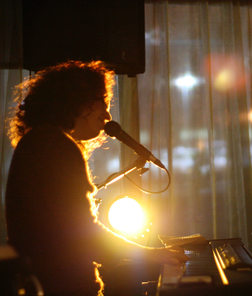 JD: Ya, that does make sense. So how does composing work for you? Do you write the music or lyrics first or does it just organically flow all together? MK: For me, I usually get a little snippet of the lyric with a bit of the melody—like a hook kind of thing and then I just try and build from there. A lot of time I’ll get the groove as well and I’ll just kind of have to work with that material and build it up. JD: Ok. Well you have a new CD out called Beneath the Folds and you are on Steve Dawson’s Black Hen Records. Is there any significance to the title Beneath the Folds? MK: Well it’s a song on the album and that particular song is probably the only love song I’ve ever written (laughs), like a bona fide genuine song about pure love with no angst, frustration or anything attached to it. I think what was happening to me when I wrote that song—I was falling in love which is a very beautiful experience and I think what was going through my mind is that sometimes when you’ve been through quite a few relationships and your heart has been broken a few times, you tend to start protecting yourself and then when you do finally meet the right person it actually takes a long time to unravel all of those layers and really let yourself be vulnerable again, as all of the other songs were being written I realized that that concept of unravelling layers and finding out what’s really beneath the surface encapsulated an overall theme for all the songs so I decided to make that the album title. JD: It definitely works – works for me anyway. Steve Dawson is a wonderful musician. What was it like working with him? MK: He is a wonderful musician. It was very enlightening. He is an understated guy. He doesn’t say too much. It works for us because I have very strong ideas about what I want. He pretty much let me do my thing unless I got to a point where I didn’t know what to do and then I would ask him for feedback and he would generally jump in with a few ideas and then we would hash things out that way. Yes, it was very complementary. Ya, he’s an incredible guy. JD: I’ve heard that from other people, too. On Beneath the Folds you have really good musicians. You have Paul Elias on drums and percussions, Andre LaChance on basses, Jeff Younger on guitars, Karen Graves, who I’ve seen many times, on saxes, Kent Wallace on trumpet, Steve Dawson plays some guitar on there, too and Alice Dawson on some vocals. Would she be Steve’s wife? MK: She is. JD: That’s quite a group you have. MK: It really is. I wish I could take them all on the road, but maybe one day. JD: Well you could always win the lottery. Ya, I know it’s really expensive to take a large group on the road and really isn’t practical these days. Now getting back to the CD, Beneath the Folds, you have a variety on genres on it. You really have a nice R&B sound on some of the tracks and some are even leaning towards gospel. “Drop Your Cover” has sort of a ska sound with horns and a reggae beat. How did you come up with that one? MK: Ya, how do I come up with any of them? Really I don’t know they just come—I think I’ve always had a love of reggae. There’s just something so infectious about a reggae groove. I’ve written a reggae tune or two in the past and this one just really—I don’t know, when the line first came to me I immediately sat down on the piano. I think the reggae grooves tend to fit well with songs and thematically really push the envelope a little bit and are a little more in your face, I guess because they just tend to have that raw visceral element to them. So, it’s just something I’ve always been attracted to and there just always seems to be a little pocket of reggae within my work that just kind of holds its own there, you know? JD: Well don’t loose it because it really fits nice on this CD. MK: Thank you. JD: You also have an extra cut at the end that you call “The Moonlight Dub Mix” and that is very cool, too. MK: Ya, that was a collaboration with Chris Gestrin, who is a phenomenal producer and keyboardist in town. I just kind of sent him the tracks and said have fun and that’s what he sent me back. A version of that anyways and we went from there. I was totally floored by what he came up with. He took it in a whole new direction again and it is just like a more modern version of ska and dub with a lot of different effects brought into the mix. It was fun. JD: Ya that version sure is fun. So, do you plan on going on the road this summer beyond your recent mini-tour? MK: I would like to. To be honest it’s a bit of a conundrum for me. I’ve done a lot of solo touring in the past and my goal with this album was to really try to commit to touring with the band, but it’s a tricky thing to take a band on the road financially. I’ve had to scale back the number of shows I’ve been doing and at the moment I’m debating how to keep this thing going or should I just go out on the road on my own and do a lot more shows. It is just so much easier logistically and simpler to just get in the car and go by myself. But, it’s a very different show and I have to keep that in mind and I have to think about what I want to present to people. Ya, I’m sure there will be more show at some point and I want to head back east to Ontario and Quebec, maybe in the fall and I’d love to get down to the States at some point; lots of things in the hopper. JD: Well, lucky them if you do manage to get there.
Mary Kastle Beneath the Folds is available on iTunes, the Black Hen store, and CD Baby At www.marykastle.com check out the MUSIC page to sample tracks |
Reviews
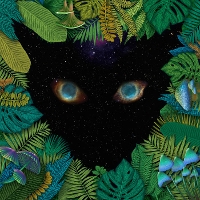
Mngwa
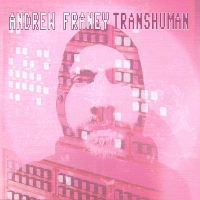
Andrew Franey
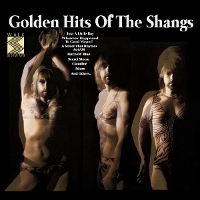
The Shangs

Alex Cuba

Tri Nguyen
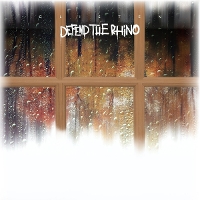
Defend The Rhino

Talltale
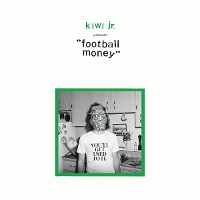
Kiwi Jr.
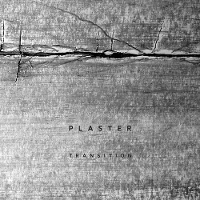
Plaster
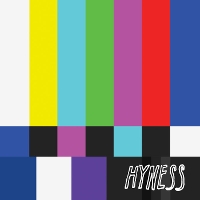
Hyness
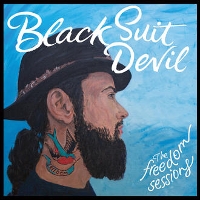
Black Suit Devil
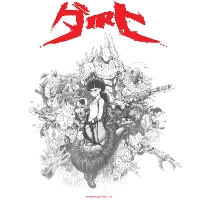
Yamantaka // Sonic Titan
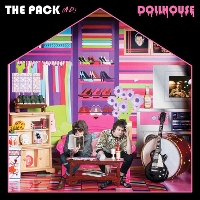
The Pack A.D.
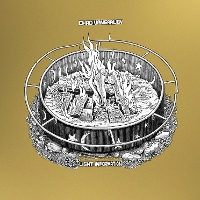
Chad VanGaalen

Potengowski Anna Friederike
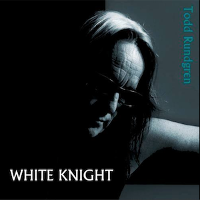
Todd Rundgren

Old 97's
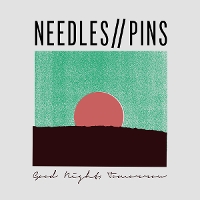
Needles//Pins


